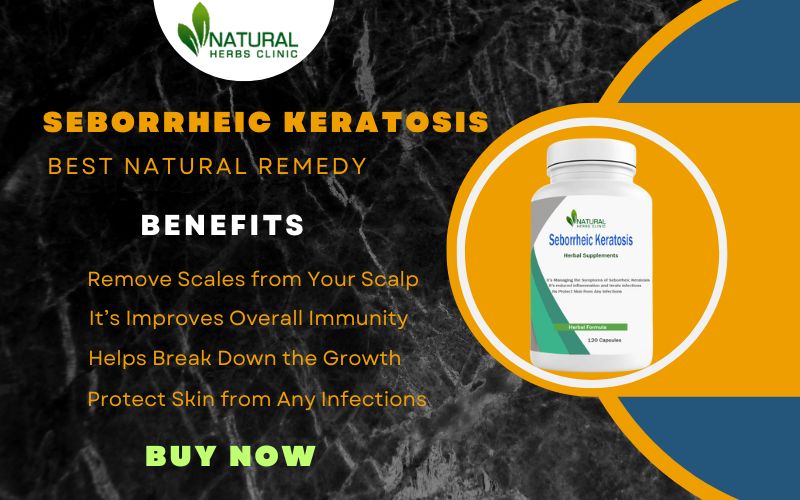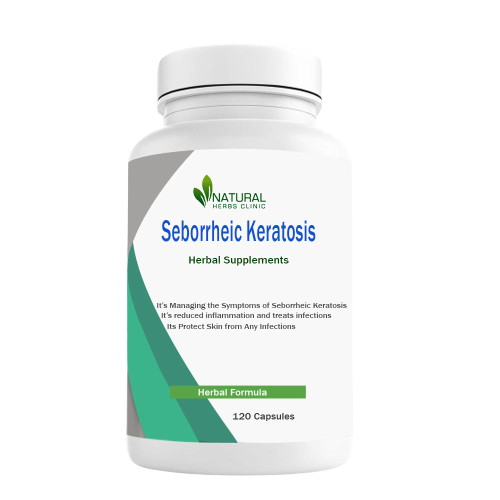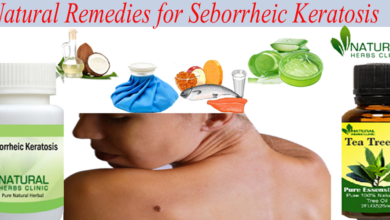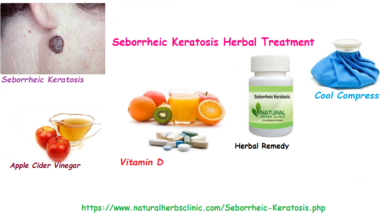Seborrheic Keratosis: Make Treatment Easy by Utilizing Natural Remedies
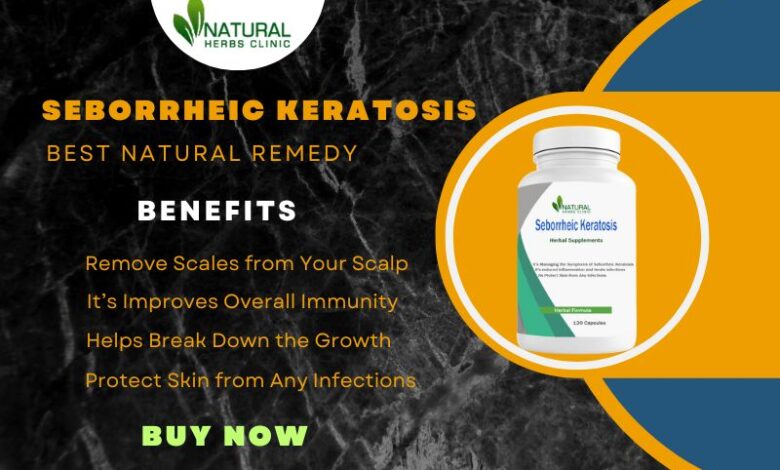
Natural Remedies for Seborrheic Keratosis such as apple cider vinegar and tea tree oil have been proven to help reduce the appearance and discomfort caused by Seborrheic Keratosis, so if you are suffering from this skin condition, give them a try.
What is Seborrheic Keratosis
Seborrheic Keratosis is a common skin condition that can cause bumps or patches of rough skin. While these bumps can be easily treated with medical procedures, there are many natural solutions that can also be used. In this blog post, we’ll discuss the various natural treatments for Seborrheic Keratosis so that you can make informed decisions about which treatment options are best for you.
Causes and Symptoms of Seborrheic Keratosis
Seborrheic keratosis is a common skin condition that can cause benign growths to arise on the skin. While the exact cause of the growths is unknown, they tend to occur more frequently with age. There are natural treatment options available to help reduce or eliminate these growths, such as topical natural remedies, such as apple cider vinegar, tea tree oil, and coconut oil. Other natural remedies include dietary changes and natural supplements that can help strengthen the immune system to reduce symptoms. It’s important to note, however, that natural treatments for seborrheic keratosis may not be as effective as traditional medical treatments and may have limited results. Therefore, it’s essential to speak with a qualified healthcare professional before beginning natural treatments for your skin condition.
Common symptoms of seborrheic keratosis include raised, waxy-looking bumps on the skin that can range in color from yellowish-brown to black. These bumps may be itchy or tender and may also appear in clusters or alone on any area of the body In conclusion, seborrheic keratosis is a common skin condition that presents itself with raised, waxy-looking bumps on the skin. These bumps can range in color from yellowish-brown to black, and they may be itchy or tender. While seborrheic keratosis is typically harmless, there are natural treatment options available if you would like to address the issue.
Evaluating Treatment Options for Seborrheic Keratosis
Evaluating treatment options for seborrheic keratosis is important to ensure the best possible outcome. In addition to freezing, burning, or surgical removal, there are other treatments available that may be better suited to an individual’s needs. Seborrheic Keratosis Natural Treatment can take the form of creams that contain ingredients like salicylic acid and glycolic acid to encourage the lesion to slough off over time. In some cases, natural remedies like apple cider vinegar or tea tree oil may be used to help reduce inflammation and combat seborrheic keratosis. Ultimately, it is important to speak with a doctor or dermatologist in order to determine which seborrheic keratosis treatment is the best option for your individual needs.
Cryotherapy using liquid nitrogen can be an effective way to treat seborrheic keratosis, though it may cause temporary redness or swelling at the site of application. It is important to talk to a healthcare provider about potential side effects and the best approach to treatment before deciding on cryotherapy as an option Also, although cryotherapy is an effective way to treat seborrheic keratosis, natural remedies are also worth considering. Many individuals find that natural treatments including tea tree oil, apple cider vinegar, and castor oil can help reduce the size and appearance of seborrheic keratosis. It is best to consult with a healthcare provider before trying any type of natural remedy for seborrheic keratosis.
Benefits of Natural Solutions for Treating Seborrheic Keratosis
Natural solutions for treating seborrheic keratosis offer several advantages over medical treatments, such as not having to take time off from work or school for doctor’s appointments, avoiding costly medical bills, and not having to risk the side effects of harsh medications. Many natural remedies for seborrheic keratosis are simple to do from the comfort of one’s own home, such as using natural oils and herbs that can inhibit or reduce the growth of lesions. Additionally, Natural Remedies for Seborrheic Keratosis are relatively inexpensive, as many natural ingredients can be found at grocery stores and health food stores. Lastly, natural treatments are less likely to cause any side effects, making them a safe and effective option to explore.
Furthermore, natural solutions often provide faster relief than medical treatments and are just as effective, meaning you can get back to your life sooner rather than later without sacrificing the quality of your care Also, natural remedies for seborrheic keratosis are a great way to get quick relief from the condition. They can provide just as effective results as medical treatments and may even provide faster relief, meaning you don’t have to wait long for your symptoms to subside. Natural solutions are a great way to get back to life as soon as possible without sacrificing care quality.
Natural Remedies for Seborrheic Keratosis
For those looking for Natural Remedies for Seborrheic Keratosis, apple cider vinegar, and tea tree oil are two options that may help reduce the appearance of the skin condition. To use these seborrheic keratosis home remedies, mix equal parts of apple cider vinegar and water and apply directly to the affected area using a cotton ball. Leave on for 10-15 minutes then rinse off with lukewarm water. To use tea tree oil, dilute a few drops of tea tree oil in a tablespoon of coconut oil or jojoba oil and massage into the seborrheic keratosis. Rinse off after 10 minutes with lukewarm water. Both remedies may need to be used multiple times over a period of time to see results.
Apple cider vinegar has acetic acid which can help remove the top layer of skin while tea tree oil is a natural anti-inflammatory that can help reduce redness and inflammation associated with seborrheic keratosis Again, Natural Remedies for Seborrheic Keratosis such as apple cider vinegar and tea tree oil can be beneficial for those suffering from seborrheic keratosis. Acetic acid in apple cider vinegar can help remove the top layer of skin while tea tree oil is a natural anti-inflammatory that can help reduce redness and inflammation. These natural remedies may provide relief from the symptoms associated with seborrheic keratosis.
Investigating Herbal Remedies for Seborrheic Keratosis
Investigating the potential of traditional herbal remedies to treat seborrheic keratosis is an exciting development in SK research. Seborrheic keratosis is a common non-cancerous skin growth, which appears as a raised, dark spot on the top layer of skin. While seborrheic keratoses are typically harmless, traditional methods for treating seborrheic keratoses often involve some form of physical or chemical removal. Through research into traditional herbal remedies, there has been an emerging focus on natural treatments to reduce seborrheic keratosis without the need for physical removal. This advancement in seborrheic keratosis research provides new opportunities for safely and effectively treating this common skin condition.
We need to look at the efficacy of various herbs and plant-based ingredients, as well as their side effects, to determine if they can be used safely and effectively for SK treatment. Home Remedies for Seborrheic Keratosis have been used in some form or another for centuries, although scientific evidence to back up their utility is still largely lacking. Common home remedies often involve the use of tea tree oil, apple cider vinegar, aloe vera, and other natural ingredients. While these home remedies may be beneficial to some people, they also carry risks and should only be used with careful consideration and medical guidance. Additionally, home remedies should never replace the use of topical treatments prescribed by a doctor and the potential adverse effects of home remedies should be discussed with a medical professional prior to use.
To ensure that these Natural Remedies for Seborrheic Keratosis are effective and safe, we must also conduct proper clinical trials to evaluate their efficacy and any adverse reactions they may cause Moreover, home remedies for seborrheic keratosis should not be used without consulting a doctor first. Although home remedies may provide some relief, it is important to ensure that they are effective and safe through proper clinical trials to evaluate their efficacy and any adverse reactions they may cause. This is an important step as home remedies may also damage the skin if used incorrectly or without enough information.
Apple Cider Vinegar
Seborrheic keratosis can be treated topically with raw, organic apple cider vinegar. A solution of 1 part apple cider vinegar to 3 parts water should be used if the seborrheic keratoses are on the face. The seborrheic keratosis is subsequently treated with the solution 2–3 times each day.
A cotton ball can be used to apply apple cider vinegar to any keratoses on other parts of the body. On healthy skin, apply a skin protector like castor oil and cover the cotton ball with a bandage. Use this cure solely at night, or swap out the cotton ball and apple cider vinegar bandage every 12 hours.
Castor Oil
Another effective topical Natural Treatment for Seborrheic Keratosis is castor oil. Only two times a day, apply castor oil to the skin growth. Castor oil is perhaps the greatest treatment for people with sensitive skin because it is calming and therapeutic to skin in general.
Aloe Vera
Apply aloe vera gel on the seborrheic keratosis twice day, similar to how castor oil is used. Search for aloe vera products that don’t contain a lot of chemical additives. Another choice is to use fresh aloe from your own plant.
Although it will take time for any of these treatments to entirely remove the seborrheic keratosis, results are frequently seen within a week or two.
Final Say
In conclusion, Seborrheic Keratosis can be easily treated with a variety of natural solutions. While medical treatments are available for this condition, Natural Remedies for Seborrheic Keratosis are often a preferable option as they can be easily applied at home and without the fear of adverse side effects.

